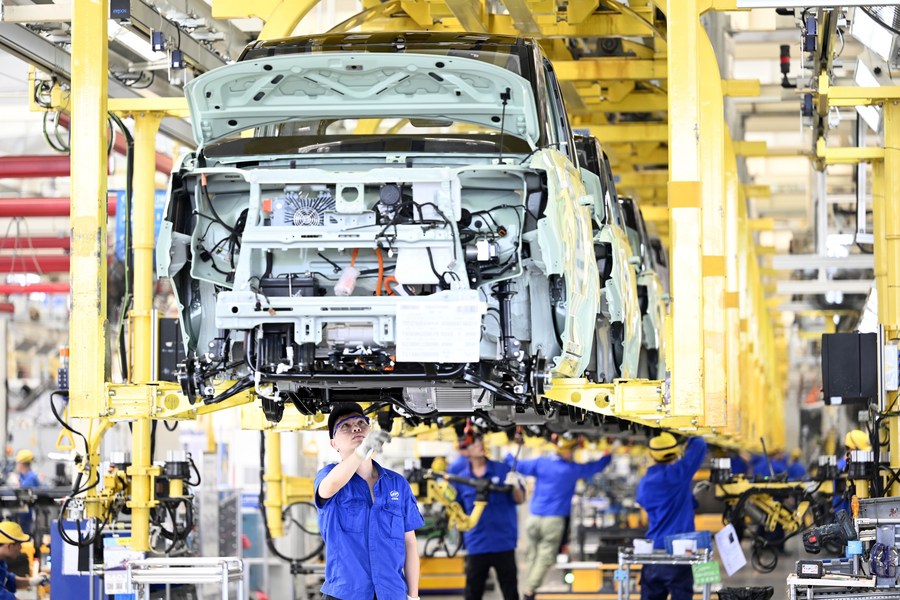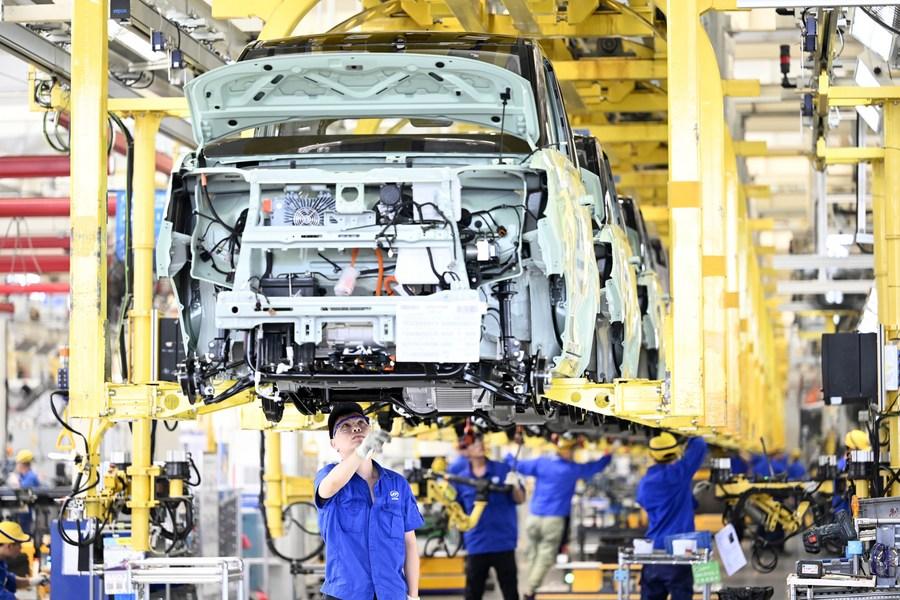
Workers assemble new energy vehicles at an automobile company in Liuzhou, south China's Guangxi Zhuang Autonomous Region, Aug. 12, 2021. (Photo by Li Hanchi/Xinhua)
BEIJING, Nov. 14 (Xinhua) -- As one of the key bellwethers of the real economy, listed firms in China have shown resilient growth amid a complex environment at home and abroad, with research and development (R&D) being the major driving force of their performance.
As of Oct. 31, a total of 4,168 listed companies on the Shanghai and Shenzhen stock exchanges had disclosed their third quarter reports for 2021, with over 80 percent of them making profits.
"In the third quarter, performance indicators including revenue and profits continued to improve," said Liu Xiangdong, a researcher with the China Center for International Economic Exchanges.
In the first three quarters of this year, companies on the main board of the Shanghai bourse reported a total operating income of 33.44 trillion yuan (about 5.22 trillion U.S. dollars), an increase of 21.43 percent year on year.
In Shenzhen, the average operating revenue of listed companies amounted to 5.15 billion yuan during the Jan.-Sept. period, up 28.2 percent from a year ago. Their average net profits reached 365 million yuan, up 20.93 percent year on year.
The steady development of the companies is propelled largely by their focus on R&D.
"Listed companies have been increasing their investments in R&D, and those with strong R&D capabilities have better business performances and anti-risk capacities," Liu said, citing the growth momentum in industries such as advanced manufacturing, green and low-carbon, and modern services.
For instance, the total R&D investment of companies on the sci-tech innovation board, commonly known as the STAR market, reached around 37.67 billion yuan in the first three quarters of this year, rising 40 percent year on year and approaching the total investment amount of last year.
With most listed firms seeing positive performance, there are still some facing operational risks due to rising commodity prices and the sporadic resurgence of COVID-19, said Yang Delong, chief economist with First Seafront Fund.
To help small and mid-sized enterprises reduce their tax burden and confront the challenges, the government has promptly introduced supportive policies such as inclusive finance and direct fiscal funds.
"The financial reports of listed firms exhibit the process of China's economic transformation and upgrade. With robust performance of the new economy, new technologies and new energy, listed firms are expected to achieve long-term profitability and high-quality development," said Tian Lihui, a professor of finance at Nankai University. Enditem




 A single purchase
A single purchase









